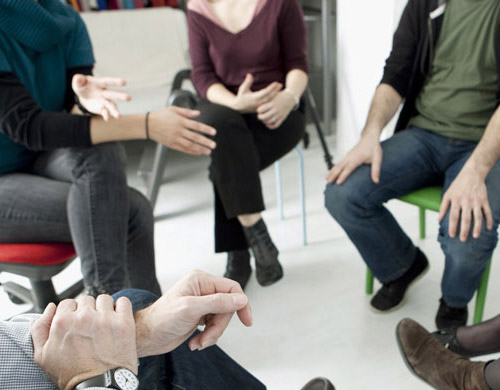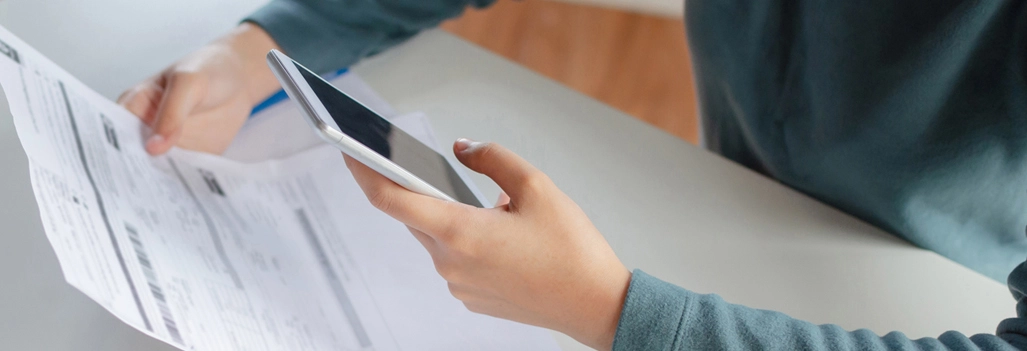Due to the difficulties that are associated with alcohol and drug addiction, many people do not know where to turn. Even though addiction is a disease, it is treatable when evidence-based treatments are utilized. Long term recovery is achievable.
This Guide will explain integrated approaches to addiction rehabilitation and how you or your loved one can begin and maintain addiction recovery.
What is Addiction Rehab (Rehabilitation)?
When we talk about addiction ‘rehabilitation’, we mean the combination of medical and psychotherapeutic treatments used to tackle dependencies on alcohol and drugs (including prescription medications). Addiction Rehab is most effective when it is tailored to your individual needs and incorporates a medically-supervised detox, residential and outpatient programs, as well as relapse prevention techniques.

Facts & Statistics about Addiction in Lodi
Prevalence of Substance Use Disorder, by Drug Type
(IN THOUSANDS)
- 2,7578.5%Any Substance
- 2,0886.4%Alcohol
- 1,0683.3%Ilicit Drugs
- 2060.6%Pain Medication
Drug- and Alcohol-Induced Deaths by Age Group, California, 2016
- Alcohol-Induced
- Drug-Induced
- 18 to 250.5
- 9.6
- 26 to 354.3
- 13.9
- 36 to 6424.2
- 22.9
- 65+23.7
- 9.4
Drug Use, by Selected Type and Age Group California, 2015 to 2016
- 12 to 17
- 18 to 25
- 26+
- Marijuana*13.2%
- 34.0%
- 13.5%
- Misuse of Pain Medications3.5%
- 8.0%
- 4.3%
- Cocaine0.8%
- 7.2%
- 1.8%
- Heroin0%
- 0.4%
- 0.2%
What are the treatment options available in Lodi?
Understanding and healing the root causes behind your substance or alcohol use disorder can be achieved through the use of an holistic treatment model. Through learning healthy coping mechanisms you can address the causes of substance abuse while tackling the main symptoms of addiction.

Private Residential Programs
A residential treatment program allows you to live at the rehab facility and receive all necessary treatment at the property. One of the biggest pros is access to continuous treatment and guidance.
When you leave your home and move into a rehab center, you can remove yourself from exposure to triggers that influenced your decision to abuse substances or alcohol. If you stay in a controlled and supportive environment, you have a greater chance of completing your rehab program without relapse and its potential dangers.
Inpatient rehab programs are good for those with intense drug and alcohol dependencies, co-occurring disorders or dual diagnosis. You can start the initial steps to recovery by taking part in a residential program, but to overcome the difficulty of the early stages of addiction recovery, you have to commit to a new life of sobriety. When you have completed your residential treatment programe you will want to be more autonomous and set new goals and challenges.
Do You Need Help?
Our addiction advisers are here to help you.

Sober Living Programs
Sober living treatment programs are designed to enable you to have more stability in your life, with guidance and supportive structures. These programs feature:
- Guidance throughout the day from a house manager
- Building frameworks for good recovery behavior
- Nurturing new friendships with others in recovery who will be going through the same types of issues
Outpatient Programs
The flexibility of outpatient treatment programs means that you do not have to stop going to work or attending family commitments, as you can attend the treatment facility and have regular treatments at your own pace.
Outpatient programs teach you:
- Education about substance misuse
- Counseling and therapy by means of group settings or one-to-one sessions – The duration of an outpatient program is three months and continue for longer than a year, this depends on your individual requirements.
Detox Only Programs
The early stage of a treatment program is detoxification, which eliminates any traces of substances from your body and tackles your physical dependency on it. As your body becomes accustomed to not the drug it was dependent on, symptoms of withdrawal usually begin. Withdrawal symbolizes the start of the rehab recovery journey, and must be followed up by tackling the primary causes of your addiction, so you do not repeat the same pattern of behaviors.
Many substances cause symptoms of withdrawal and cravings for a period of time after they have been cleared from your body. In rehab therapy you will identify the coping skills for long-term abstinence, so that you can reduce the risk of relapse in the future.
Paying for Private Treatment
If you choose private rehab, you can pay for treatment by funding it yourself or claim through your insurance. A good selection of health insurance providers will cover some of the costs of rehab, which includes drug or alcohol detox, the rehab program, medicines you may need and aftercare programs. The total amount you can claim can be identified by your policy rules and your provider.
It is good practice to find out about the amount you can claim prior to enrolling in a rehab program. Our Verify Your Insurance page will help you to determine the amount of cover you are eligible for. If you don’t get cover from your insurance provider, you will be responsible for paying directly for your treatment. In some cases, it may be possible to opt in to a payment plan if the total cost is a barrier to you receiving treatment.
State Funded Programs
State-funded rehab programs are designed for people who need to overcome a drug or alcohol problem but have limited funds to pay privately for a program. These programs provide funding from Medicaid and state/federal budgets to facilitate recovery through:

- An alcohol detox or drug detox that is medically-managed
- Addiction treatment programs including aftercare and support
People with no private healthcare insurance or live in households where the combined income is low may apply for a state-funded treatment program. So that you can begin the process, you will need to give:
- Proof of your financial situation
- Proof of residence
- Your personal medical details regarding your substance misuse
- Proof you are living in the US legally
You can learn more about how to apply by visiting here. This pdf document has your state agency’s contact details.
The following state-funded addiction rehab programs are available in Lodi:
Aegis Treatment Centers LLC
541 South Ham Lane, Suites A and B, Lodi, CA 95242
209-224-8940
aegistreatmentcenters.com/clinic/aegis-lodi/Aegis Treatment Centers LLC
8626 Lower Sacramento Road, Suite 41, Stockton, CA 95210
209-478-2487
aegistreatmentcenters.comTowns Health Services
750 Spaans Drive, Suites C, D and F, Galt, CA 95632
209-744-9909
www.townshealthservices.com
Maintaining Addiction Recovery in Lodi
Sustaining recovery can be difficult once you return to life outside of rehab. When you were in rehab the environment was controlled and you had support from professionals. When you leave, you may encounter new challenges or triggers that test your coping skills in ways you may not have anticipated. Long term recovery is more challenging if you have a severe dependency or if you return to your new life without social support structures in place. Guidance and aftercare support is integral in the early stages of recovery to help prevent relapse.
The following AA/NA meetings are available in Lodi:
Freedom NA
Closed, Addicts Only, Women Only and Speaker Discussion:
1321 W Lockeford St. Lodi, CA 95242
Wednesday: 7:30 pm-8:30 pm
http://www.centralvalleynorthna.org/Lodi Fellowship
Speaker Discussion:
267 N Mills Ave., Lodi, CA 95242
Friday: 7:00 pm-8:15 pm
http://www.centralvalleynorthna.org/AA - Lodi Lite Tuesday Morning Discussion
Open and Discussion:
26 Elm Street, Lodi, CA, 95240
Tuesday: 7:00 am – 8:00 am
https://alcoholicsanonymous.com/aa-meeting/
Aftercare & Alumni Programs
Aftercare programs are an extension of rehab once you leave the rehab center. Because it’s hard to predict what’s going to happen from one day to the next, an estimate of 60% of clients in recovery sadly relapse, this makes ongoing aftercare an important feature of long-term recovery. As you draw closer to the end of your rehab program, we will support you to establish an aftercare package that includes the services most vital to your long-term recovery. Alumni programs are an extra benefit to completing rehab and allows you community access to ex-clients and staff.

You will benefit from access to mentorship and support from other ex-clients in recovery, and attend other events. Additionally, you may want to take the opportunity to support others if you choose to.
Support Groups (Fellowship Meetings)
Through support group participation you can enable a support structure that is helpful to your long-term sobriety. To maintain addiction recovery, will get long-term recovery support if you participate in groups like Narcotics Anonymous or Alcoholics Anonymous by attending weekly 12-step meetings. By attending nearby support group sessions you will hear, and learn from, the recovery journeys of other people. Companionship, empowerment and taking responsibility for our actions are key to long-term recovery, and meetings provide many with the necessary tools to stay sober.
Support for Families & Children Affected by Addiction
Addiction hurts everyone in a household to varying degrees.
All members of the family need help with a household addiction, not only the addicted person.
Family support groups have two major benefits: you can support yourself and the individual overcoming substance dependence.
Your family members may benefit from support groups such as:
- Parents of Addicted Loved Ones
- SMART Recovery Family & Friends
- NAMI Family Support Groups
- Al-Anon
- Families Anonymous
- Alateen
- Nar-Anon










